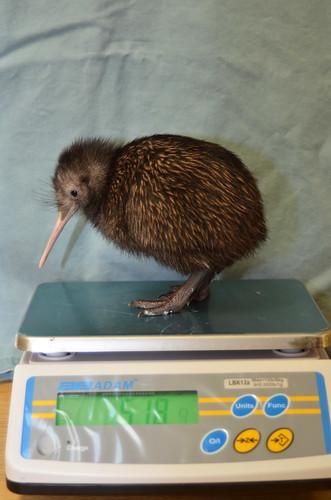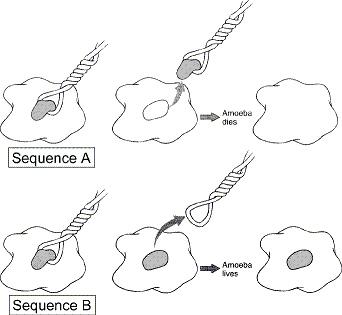Chapter 1 General Biology
Which of the following is NOT a major theme of biology?
The mechanisms of disease.
The cell theory states that all living organisms:
Are composed of basic units called cells.
Which of the following is NOT a characteristic of all living organisms?
Multicellularity.
The science of life is:
Biology.
If an organism is eukaryotic, then by definition it will:
Possess a nucleus.
In all organisms, hereditary information is encoded within ___ molecules.
DNA.
A prokaryotic cell differs from a eukaryotic cell in that a prokaryotic cell:
Is exemplified by bacteria.
Biological growth involves an increase in:
- both the number and size of cells.
- both the number of cells and the number of gene types in a cell.
- the number of cells.
- the number of gene types in a cell.
- the size of individual cells.
Both the number and size of cells.
In living organisms, chemical reactions responsible for growth, repair, and nutrition are collectively referred to as:
- adaptation.
- metabolism.
- development.
- homeostasis.
- genetics.
Metabolism.
Homeostasis in living organisms involves processes that:
maintain a constant internal environment.
If a particular protein were being produced in excess of the cell's needs, then __ mechanisms intervene to stop production.
homeostatic.
Cilia and flagella are most directly involved in:
movement.
Organisms that are sessile as adults:
do not move from place to place.
Which of the following stimuli most directly causes the Venus Flytrap to catch an insect?
touch.
Which of the following is a characteristic of asexual, as opposed to sexual, reproduction?
a cell splitting in half.
One benefit of sexual reproduction over asexual reproduction is that:
the interaction of the genes from both parents brings about generic variation.
Which of the following is NOT an adaptation of Burchell's zebras to their environment?
asexual reproduction.
Reductionism refers to the method of investigating structures by:
studying the parts of the structures.
Which of the following is the most basic level of chemical organizations?
atom.
When tissues organize into functional structures they form:
an organ.
All of the members of the same species occupying the same area at the same time constitute:
a population.
Which of the following is NOT a term related to information transfer in living systems?
taxon.
Which of the following is NOT true of proteins?
they contain the code or the "recipe" for making other molecules that are important for life processes.
Information in living organisms can be transmitted by:
genes, hormones, & neurotransmitters.
Which of the following is NOT true of hormones?
they are a type of gene.
Which of the following is NOT a concept or term related to the flow of energy through living systems?
sexual reproduction.
Autotrophs:
synthesize complex molecules from CO2, water, and energy.
Which of the following represents the pattern of energy flow within an ecosystem?
from producers to consumers to decomposers.
All of the following are associated with the process of evolution, but which of these statements best defines the overall process of evolution?
changing of populations over time.
Which of the following is produced via the process of cellular respiration?
carbon dioxide.
Using the Linnaean system of nomenclature, corn is named Zea mays. In this name, the specific epithet is:
mays.
Which of the following terms includes the fewest species of organisms.
population.
As you move one step higher in the hierarchical classification system, similar families of organisms are next grouped together in the same:
order.
The domain Eukarya includes all of the following EXCEPT:
bacteria.
You discover an organism that is eukaryotic, unicellular & photosynthetic. Based on this evidence, you organize this organism to the:
protist group.
To what group do I belong? I am neither prokaryotic nor photosynthetic, and I obtain nutrients by secreting digestive enzymes into my environment.
fungi.
One of the conclusions drawn from Darwin’s theory of evolution is that:
organisms living today descended with modifications from previously existing forms.
In Darwin’s theory of evolution, adaptation involves changes in:
communities.
The ultimate source of generic variation within a population is:
mutations in DNA.
Which of the following is NOT a concept or term related to evolution?
cellular respiration.
In the deductive approach to scientific thought processes, we begin with __ and make __ based on that information.
premises; conclusions.
A hypothesis is:
a tentative explanation.
A good hypothesis:
is falsifiable.

The organism in the accompanying figure can be classified as:
a bird.

Figure 1-1 Use the figure to answer the corresponding question(s). Sequence A in Figure 1-1 represents:
the experimental group.

Figure 1-1 Use the figure to answer the corresponding question(s). Sequence B in Figure 1-1 represents:
the control group.
If we want to examine the effect of a fertilizer on the size of zucchini produced, we would need to establish both experimental and control groups. The experimental group has all the following: soil, fertilizer, water, sun, and zucchini seeds. The control group for this experiment would have all of the same components except:
fertilizer.
The term sampling error refers to inaccuracies in an experiment due to:
the test being conducted on a very small population of test subjects
Similar orders are placed in the same class.
True.
When you use deductive reasoning you draw conclusions from specific observations.
False.